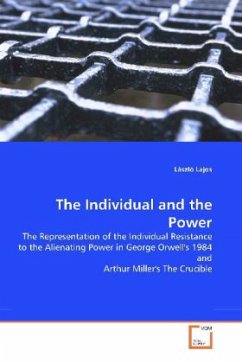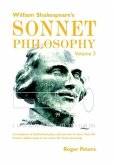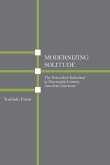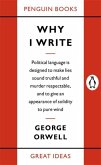Is Big Brother still watching us? Orwell's well-known sentence is one of the briefest-and most sinister-literary expressions of the relationship between the individual and the power. Just like a Zen koan, it makes us think longer: the power is not only continuously watching us but it is permanently influencing our way of thinking, our prejudices, actually our whole worldview. This struggle can be found in a dictatorship and a democracy as well. An individual has only one device to fight with it: to develop real inward autonomy. The two fundamental pillars of the personal autonomy are freedom and love. The study represents this enormous fight through two famous literary works: Orwell's 1984 and Arthur Miller's drama The Crucible. At the end of the study there is a brief subjective analysis about the present position of this "war". Its consequence is quite pessimistic: the human being is about to lose the fight; the development of the real individual autonomy has never been harder than nowadays.








